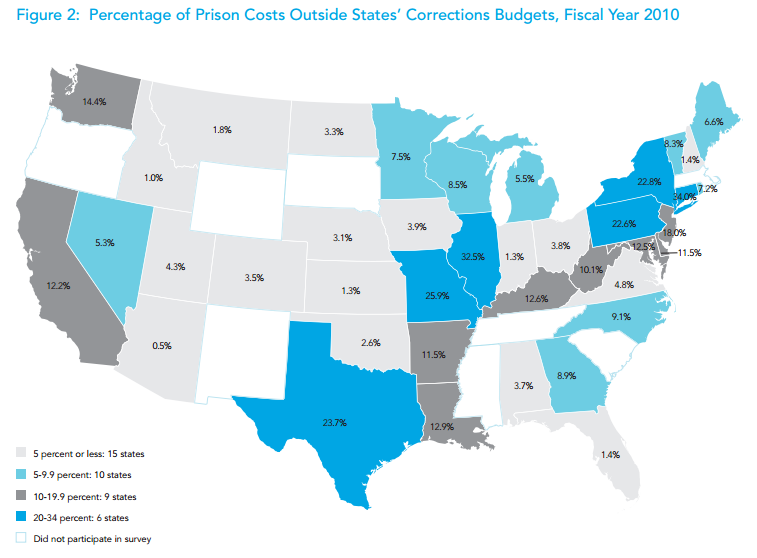Here's Exactly What Our Addiction to Prison Costs You

By:
The American prison system has come under fire for many reasons—from the for-profit structure of many prisons to our staggeringly high prison population. But what are prisons really costing taxpayers?
The United States' incarcerated population has been estimated at a whopping 2.2 million, and it has more than quadrupled since 1980 –- all while crime rates have actually dramatically decreased. The chief cause for the explosive rise in inmates is longer and harsher sentences for drug offenders since the start of the War on Drugs.
According to a 2012 study by the Vera Institute of Justice, it costs an average of $31,286 to house an inmate for a year, with the total cost of state prisons to taxpayers at roughly $39 billion in the 40 states that participated in the study. The total cost of the prison systems in those 40 states was actually 13.9 percent higher than the states’ total combined corrections budgets. That means prisons are over budget and are siphoning from the general state fund, placing an even greater financial burden on taxpayers and forcing cuts to other portions of the state budget. In Illinois, for instance, 32.5 percent of the money spent on prisons came from outside the state corrections budget.

To put that into context, the money it takes to keep a single inmate in jail for a one year could pay for two years of in-state tuition at the University of Pittsburgh, the country’s most expensive university for in-state students, with money to spare. The money it costs to keep a single person incarcerated for one year could also feed roughly two families of four for that same year.
The state with the highest incarceration rate is Louisiana, with 847 people behind bars per 100,000 residents. Louisiana is followed by Mississippi, which incarcerates 692 people per 100,000. Louisiana and Mississippi also, according to the U.S. Census Bureau, have the second and third highest poverty rates in the country, respectively. Louisiana recently ended a fierce debate about its education budget by passing what were acknowledged as patches and short-term fixes. Presumably, were the state spending less money on keeping a large chunk of its population behind bars, they could afford to find a more long-term solution to their education problems.
It is impossible to calculate the true price of prisons because you'd have to account for the benefits that corrections money could provide elsewhere. Educating young Americans and feeding hungry families surely benefit a society in a way that locking up nonviolent drug offenders does not.
There is some good news, though—Colorado made headlines when it closed its second prison in two years in 2012, due to drastic declines in inmate populations, saving taxpayers in the state roughly $4.5 million. It’s a small step, but hopefully it is the first of many towards less taxpayer money to jails and more to creating a better society.
